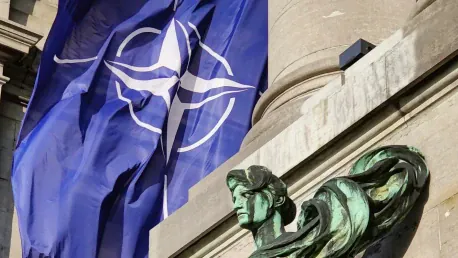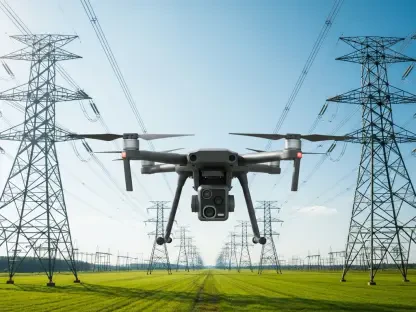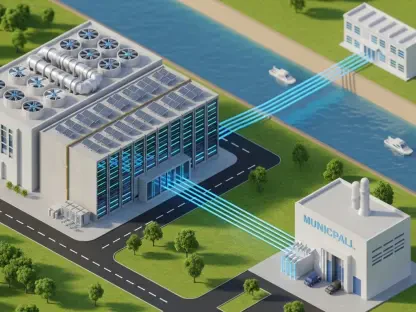The transatlantic alliance between Europe and the United States has long been a bedrock of global security. However, recent developments have thrown its stability into question, especially concerning the U.S.’s commitment to European defense. This article explores the current state of the alliance and the steps needed to ensure its future vitality.
The Growing Internal Challenge
Doubts About U.S. Commitment
Today, the stability and future of the transatlantic alliance are increasingly uncertain due to skepticism surrounding the United States’ commitment to European security. The foundation of the alliance has been shaken by statements and policies from President Donald Trump and his advisers, which have made European leaders question the reliability of U.S. support. These doubts have resulted in a profound sense of insecurity within Europe’s leadership circles, with some fearing that the United States may not honor its longstanding defense commitments.
The rhetoric from Washington has arguably widened the trust gap between the two sides of the Atlantic. European leaders, accustomed to unwavering support through NATO and various bilateral agreements, now find themselves grappling with uncertainty about future U.S. actions. The effects of this uncertainty ripple through European defense planning, causing a reevaluation of security strategies that previously relied heavily on American support.
Impact on Strategic Independence
Faced with the potential for U.S. disengagement, some European leaders are considering pursuing strategic independence by enhancing their defense capabilities. This notion arises from the need to safeguard their nations without overly relying on U.S. commitment, which appears increasingly precarious. Nevertheless, this shift towards independent capabilities comes with significant risks. While it may offer a more self-reliant defense posture, it could exacerbate existing tensions and hasten the disintegration of the transatlantic alliance.
Adopting a unilateral approach without careful consideration may inadvertently destabilize the intricate balance of security that has prevailed for decades. The collective strength of the alliance, which lies in the pooled resources and shared strategic interests of its members, could be undermined, leaving both Europe and North America more vulnerable. To ensure that the pursuit of strategic independence does not compromise mutual security, Europe must navigate this path with a nuanced, collaborative approach that still preserves the core tenets of the alliance.
Steps Towards Enhanced European Defense
Necessity for European Action
The contemporary geopolitical environment demands that Europe take proactive steps to bolster its defense capabilities, ensuring a more equitable distribution of the security burden. This shift is not only crucial for the continent’s immediate security needs but also essential for maintaining the integrity of the transatlantic alliance. By enhancing their military capabilities, European nations can demonstrate their commitment to collective defense and reduce the disproportionate reliance on the U.S.
A significant component of this enhanced European action must include an unwavering commitment to Ukraine’s security and independence. Ukraine’s stability is vital, not only for regional security but also as a symbolic frontier of European resilience against external aggression. European military and economic support for Ukraine signals to potential adversaries, notably Russia, that the continent is prepared and unified in its defense. Alongside this, European leaders must engage in strategic dialogues to develop a cohesive and comprehensive defense strategy that aligns with broader transatlantic objectives.
Joint Defense Priorities
Collaborative determination of joint defense priorities between Europe and the U.S. is essential to ensure long-term security. A primary focus must be on clearly identifying and developing the capabilities necessary to address modern threats. This collaboration requires an intensive and sustained effort to fortify the defense industrial base, ensuring that it is capable of supporting advanced military technologies and large-scale production if needed. Strengthening the industrial base is not merely a matter of economic investment but entails deep structural reforms and modernization.
The goal is to create a resilient and flexible industrial ecosystem that can rapidly adapt to the ever-evolving security landscape. By working closely with the U.S., Europe can leverage technological innovations and best practices to enhance its industrial capacities. This transatlantic cooperation should extend to areas including research and development, joint military exercises, and defense procurement. The outcome should be a streamlined and synergistic defense posture capable of responding to multiple strategic threats while reinforcing the unity and strength of the alliance.
Key Defense Missions
Deterring Russian Aggression
The primary mission of the transatlantic alliance remains to deter Russian aggression, a threat that has persistently overshadowed European security. To achieve this, Europe needs a credible and ready deployment force far exceeding its current capabilities. Extensive war games and strategic simulations consistently highlight the shortfall in European deployable troops and underline the urgent need for an increase in both numbers and readiness. The deterrent effect against a potential aggressor like Russia hinges on the visible and substantial capability to mount a rapid and decisive response.
Building this broad readiness requires substantial investments in training, equipment, and infrastructure. European forces must adopt more integrated and interoperable systems to ensure seamless coordination with U.S. military assets. Enhanced forward deployment capabilities, rapid mobilization forces, and an increased presence along Europe’s eastern borders are strategic imperatives. Through meticulous and sustained planning, Europe can develop a force posture capable of acting swiftly to prevent aggression and, if necessary, engage effectively in combat operations that preserve regional stability.
Southern Flank Security
While focusing on deterring Russian aggression is crucial, Europe must also address the security challenges emerging from its southern regions. Instability in the Middle East and Africa significantly impacts European security, primarily through large-scale migrations driven by conflict, poverty, and political instability. These migrations pose socio-political and economic challenges to European nations, demanding a multifaceted and forward-thinking defense strategy.
Europe needs to enhance its ability to project power and maintain stability in these volatile regions. This includes bolstering peacekeeping capabilities, participating in international stabilization efforts, and supporting local security forces. Investing in preventive measures like humanitarian aid, development projects, and diplomatic initiatives can mitigate the root causes of instability and migration. A concerted effort to stabilize Europe’s southern flank is indispensable for the long-term security of the continent and forms a critical component of a comprehensive defense strategy.
Addressing Other Strategic Threats
Arctic Presence
Countering Russian activities in the Arctic region is another pivotal area where the transatlantic alliance must focus its efforts. As climate change opens new shipping routes and resource opportunities, the Arctic has become a strategic frontier for military and economic competition. Russia’s expanding military presence in the region poses a significant challenge, necessitating a robust and proactive response from the alliance.
Expanding the military presence in the Arctic involves several strategic actions, including enhancing surveillance capabilities, conducting joint Arctic military exercises, and developing cold-weather combat skills. Establishing permanent or rotational bases in strategic locations can ensure a continuous and credible deterrent posture. The alliance must also prioritize international cooperation on Arctic governance to ensure that the region remains stable and that international laws are respected. Sustained focus on the Arctic front not only counters Russian ambitions but also reinforces the alliance’s northern defense perimeter.
Support for U.S. in Asia
Although a direct military conflict with China may not necessitate large-scale European deployment, Europe’s support for U.S. efforts in Asia is crucial for maintaining a balance of power. This support is particularly vital in maritime operations, where freedom of navigation in the South China Sea and other contested waters is of global strategic interest. By providing logistical, intelligence, and technological support to U.S. naval operations, Europe can play an indispensable role in deterring Chinese aggression.
European navies can enhance their capabilities to operate in concert with U.S. forces, ensuring interoperability through joint exercises and harmonized command structures. Furthermore, Europe can support diplomatic and economic efforts to strengthen alliances with key regional players such as Japan, Australia, and South Korea. This indirect but significant role in the Indo-Pacific strategy underscores the global scope of the transatlantic alliance and its commitment to maintaining peace and stability far beyond its immediate borders.
Industrial Capacity and Financial Implications
Strengthening Defense Industrial Base
Recent conflicts, such as the war in Ukraine, have highlighted the limitations of Europe’s defense industrial base, underscoring the urgent need for its expansion and modernization. These limitations became starkly apparent when Europe struggled to meet the demands of high-intensity conflict and sustain prolonged military operations. Addressing these shortcomings requires a comprehensive approach to strengthen the defense industrial sector, borrowing strategies from successful models like those employed by the U.S.
Implementing U.S.-style industrial policies involves fostering innovation through investment in research and development, incentivizing private sector participation, and ensuring that procurement processes are streamlined and effective. It also calls for the coordination of efforts across different European nations to avoid duplication and benefit from economies of scale. By modernizing production facilities, investing in cutting-edge technologies, and developing a skilled workforce, Europe can build a robust industrial base capable of supporting its defense needs.
Investment in Defense
Achieving the proposed enhancements in European defense capabilities will necessitate substantial financial investments. Increased spending is inevitable if Europe is to address the gaps in its military readiness and strengthen its strategic position. Defense budgets might need to be raised to around 2.5% of GDP, a significant leap for many European nations. However, through strategic allocation of resources, it might be possible to cap this increase at 2.2%, making the financial burden more manageable while still achieving the desired outcomes.
Investments must be directed towards areas that deliver the highest strategic value, including advanced weaponry, cyber defense capabilities, and force modernization programs. Transatlantic cooperation can help optimize these investments by ensuring that European and U.S. defense strategies are mutually reinforcing. Furthermore, fostering public and political support for increased defense spending is essential, requiring leaders to clearly communicate the necessity and benefits of these investments for long-term security and stability.
Reaffirming U.S. Commitment
Troop Presence and Nuclear Defense
For the transatlantic alliance to remain credible and effective, the United States must reaffirm its commitment through sustained military presence and assurances of nuclear defense. The presence of U.S. troops in Europe serves as a powerful deterrent to potential aggressors like Russia, signaling that any attack on European soil would elicit a strong and immediate response. Continued troop deployments, joint training exercises, and collaborative defense initiatives are vital to maintaining this deterrent posture.
Nuclear defense assurances are equally critical, underpinning the broader security architecture of the alliance. The U.S. nuclear umbrella acts as the ultimate deterrent against existential threats, providing European nations with a security guarantee that is integral to collective defense. These commitments must be unequivocal and unwavering, reinforcing the message that the security of Europe and North America are indivisible. By solidifying its defense commitments, the U.S. can help restore trust within the alliance and ensure its longevity.
Interconnected Security
The transatlantic alliance between Europe and the United States has been a cornerstone of global security for many decades. However, recent political and strategic shifts have cast doubts on the strength and stability of this long-standing partnership. A primary point of concern revolves around the United States’ unwavering commitment to the defense of Europe. This issue has gained prominence amidst evolving international dynamics and changing administrative priorities. As the world becomes increasingly multipolar, the nature of this alliance is being reassessed in both Washington and European capitals.
The article delves into the current circumstances surrounding the alliance, examining the factors that challenge its continuity and the necessary measures to revitalize its influence. It highlights the mutual benefits derived from this partnership, underscoring that a strong transatlantic relationship is crucial not only for European security but also for broader geopolitical stability. Furthermore, it outlines potential strategies that could reinforce the alliance, such as increased defense spending by European nations, greater diplomatic engagement, and the modernization of military capabilities. Ensuring the future vitality of the transatlantic alliance requires both sides to adapt to the new world order while reaffirming their shared values and common goals.









